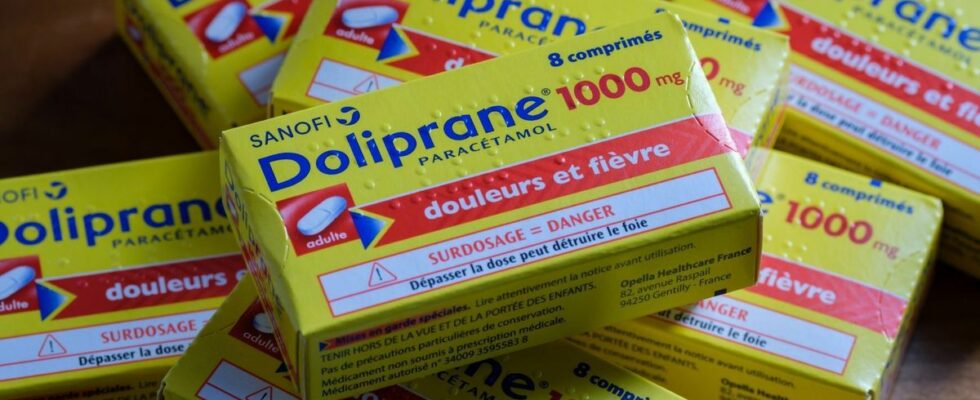Published on
updated on
Reading 3 min.
The Sanofi laboratory has announced its intention to sell its subsidiary Opella, notably producing Doliprane, to an American investment fund. Is there a risk of a shortage of this drug in the years to come? The answers from Frédéric Bizard, health economist.
Flagship of Sanofi laboratories, will Doliprane soon be American? The pharmaceutical giant announced on Friday October 11 the opening of negotiations with the American investment fund CD & R. Objective: to cede control of its over-the-counter products subsidiary Opella, which produces drugs such as Doliprane, Mucosolvan against coughs or even food supplements such as NovaNuit.
A decision announced a year ago already
As we mentioned in an article written last year on the subject, Sanofi’s announcement is not a surprise. Already at the time, the laboratory declared that it would abandon its consumer activity at the end of 2024.
“This decision to sell this consumer health division, which weighs 5 billion euros, is disguised as being a strategic choice, to invest in research and development. The subsidiary could be sold for half, for 8 billion euros, this time, before a second round of financing, in 3 to 5 years, to sell the other half. comments Frédéric Bizard, health economist, founder of the Health Institute and author of “The homeless in health – What future for our health“ published last week by Michalon editions.
The late indignation of the political class
Following this announcement, many politicians protested. In the “Tribune Dimanche”, all the socialist parliamentarians published a joint column. “The government must refuse the American takeover of the Lisieux factory [Calvados] of Sanofi, and require Sanofi to preserve national control of these activities essential for our sovereignty” can we read there.
A comedia dell’Arte for the economist, who deplores the inaction of our leaders. “Sanofi’s announcement is not new, we could have looked for a Franco-European industrial consortium, for example, to take over this subsidiary. Our politicians were not up to the task of taking this matter in hand, at least good time.”
When faced with an investment fund, the logic is purely financial
However, following the Covid-19 pandemic and the shortages of medicines – including Doliprane – that our country is experiencing, we could have imagined another logic on the part of the government.
The Ministers of Economy and Industry, Antoine Armand and Marc Ferracci, however (belatedly) took up the matter and went to the Doliprane production site in Lisieux this Monday morning. “We have started discussions with Sanofi and with Opella. about “conditions which would be essential and a formalized agreement which must take place and will take place if the transfer project arrives on the table” declared Antoine Armand before adding that “these guarantees must be respected and we will ensure that they are by mobilizing all the legislative and regulatory tools at our disposal, including penalties and sanctions in the event of non-compliance with the agreement.”
Both to reassure employees but also public opinion, who fears missing precious little yellow boxes in the future. “Indeed, sovereignty is not only the fact of possessing the thing” explains Frédéric Bizard. “It also means having negotiating power with your counterpart. But when faced with an investment fund, we fall into a purely financial logic, of profitability. There is no place for public health, which is supposed to be guaranteed by our country and its history.”
If the government allows this operation to take place, this will further illustrate the pharmaceutical desertification in France, for the specialist. “An area where we were a leader in 2008. Today, we are at the 6e place and between 2017 and 2022, out of 512 drugs launched, only 48 are produced in France.
Is there a risk of a shortage of Doliprane in the years to come?
Beyond these political and financial considerations, the real question that we are all asking ourselves is the following: are we at risk of running out of Doliprane in the years to come? According to Frédéric Bizard, not in the short term, but certainly in the future.
“The problem will undoubtedly come from the margin, because it is low for Doliprane in France and the investment fund will not be able to touch the production costs. To optimize it, it is possible that the drug is sold as a priority to countries which have better conditions and that France is served last.” he analyzes.
“The tension can also be increased by the fact that the medicine is managed on a tight schedule, we cannot stock it. So many criteria which, taken together, create the conditions for a possible worsening of the shortage in our country” he concludes.
